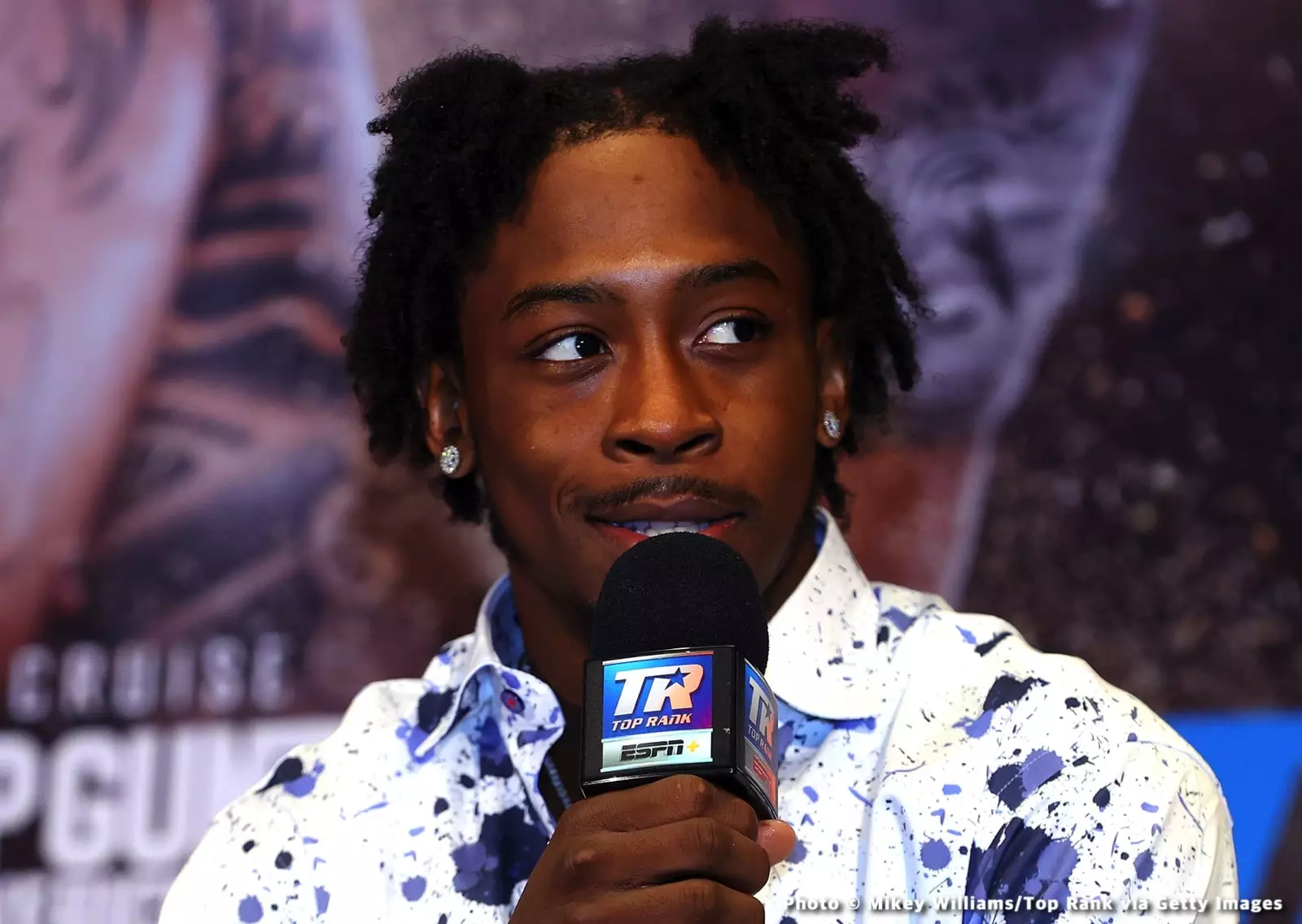BY BOXING HIT STAFF-
In the often ruthless world of professional boxing, the ability to accept defeat is as crucial as the training and skill required to win. Recently, Devin Haney’s response to his loss against Ryan Garcia has come under heavy scrutiny from fellow boxer Keyshawn Davis. Haney initiated a lawsuit against Garcia following the latter’s positive test for Ostarine—albeit at a remarkably low level of 0.1—after their April bout in Brooklyn. Here, Davis argues that Haney’s legal maneuvers reflect an inability to gracefully handle loss, branding him as “soft” and suggesting that he has been coddled throughout his career.
Davis did not mince words while discussing Haney’s mindset post-fight. By asserting that Haney’s defeat stemmed not from Garcia’s alleged drug use but rather from simply being outmatched, Davis is questioning Haney’s integrity as a fighter. “You met someone better than you,” he states bluntly, signaling that the real issue lies in Haney’s readiness to blame external factors rather than confront the reality of his performance. This perspective invites a broader dialogue on accountability in sports, where many athletes often fall into a pattern of finger-pointing rather than introspection.
By labeling Haney a “daddy’s boy,” Davis asserts that Haney’s privileged background has shielded him from the hardships that often define great athletes. Such commentary emphasizes the psychological dimension of sports where the mental fortitude involved in handling defeat can often make or break a fighter’s career. Rather than showing resolve, Haney’s choice to pursue legal action might be perceived as an attempt to deflect responsibility and regain control of a narrative that has gone awry.
The public’s reaction to Haney’s lawsuit further amplifies Davis’s claims. The boxing community largely sides with Garcia, criticizing Haney for seeking what could be interpreted as petty compensation rather than rematch opportunities. The sense of solidarity among boxers and fans alike suggests that the ethos in the sport increasingly values grit and resilience over legal claims and blame. By focusing on litigation, Haney risks alienating fans and potential future opponents, who may see him as someone unwilling to engage in the brutal honesty that the sport demands.
Concluding Thoughts on Accountability in Sports
Ultimately, Davis’s critique serves as a microcosm of a larger issue in competitive sports: the challenge of facing defeat without resorting to anger or blame. As Haney continues to grapple with his loss, the onus is on him to redefine his narrative. Will he emerge from this experience as a stronger, more accountable athlete, or will he remain trapped in the cycle of denial and litigation? The actions he takes moving forward will tell whether he is capable of not just winning titles but cultivating the character expected of a true champion.


Leave a Reply